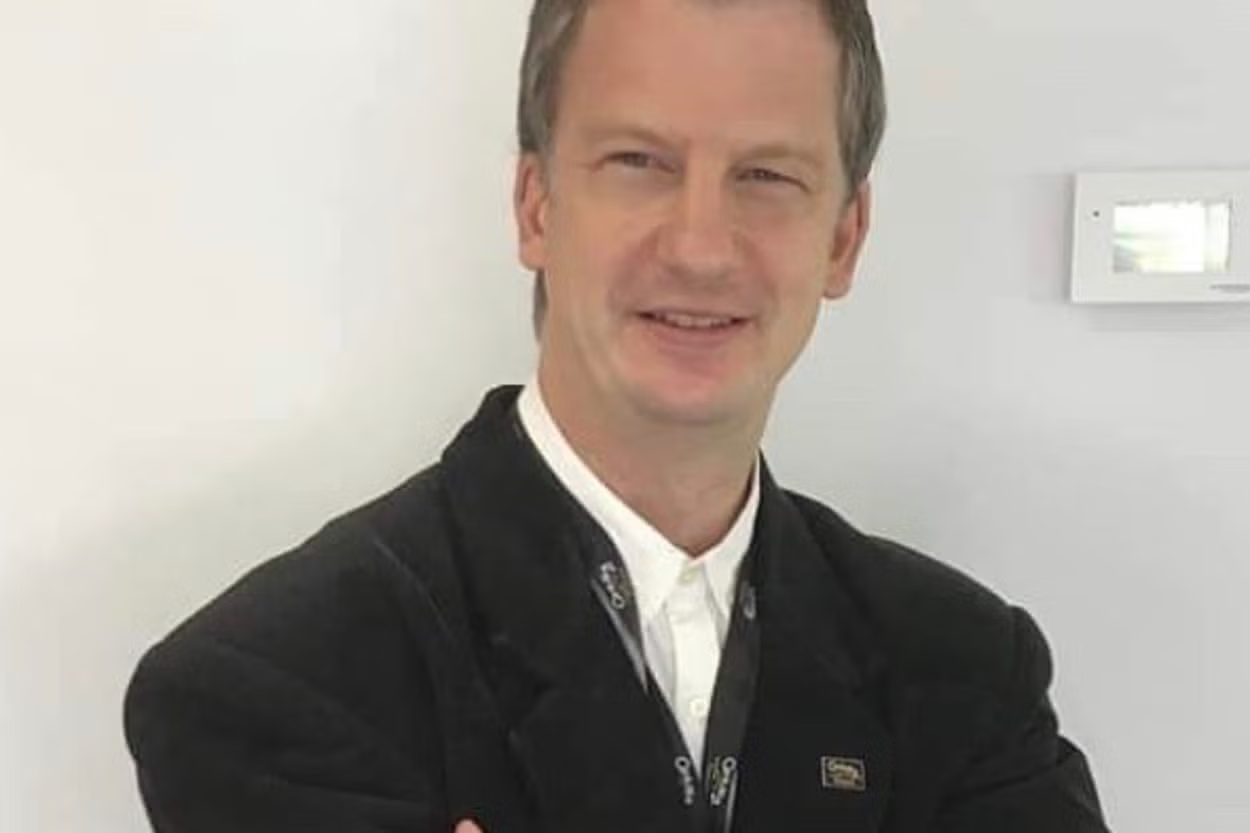Henrik Lenkeit was sitting on his couch in southern Spain when his life split in two. The 49-year-old couples therapist, a Christian pastor who had always felt drawn to Israel, turned on a documentary about Heinrich Himmler, the SS chief who engineered the Holocaust. By the time he shut off the television and began searching online, he had no idea he was minutes away from discovering that the architect of the murder of six million Jews was his own grandfather.
The face that stared back at him from an old photograph was painfully familiar. Himmler’s mistress, Hedwig Potthast, was the woman he had known only as his warm, chocolate-offering grandmother. “I looked up and saw Himmler’s mistress — my grandmother — in the picture with Himmler,” he told the Times of Israel. Within months of genealogical digging, supported by research from Der Spiegel and political scientist Katrin Himmler, the truth was unmistakable. His mother, Nanette-Dorothea, born in 1944, was Himmler’s daughter.
The shock destroyed the story Lenkeit had lived with for nearly five decades. “My whole life has been a lie — 47 years of it weren’t true,” he said. Relative after relative cut him off as he made the discovery public. And yet, as he walked through what he described as a year of mourning, something else became clear: his faith, and his deep connection to Israel, were not shaken. They were strengthened.
The prophet Yechezkel delivered a principle that refuses to let guilt pass down automatically, even in the face of terrible ancestry. “The son shall not bear the iniquity of the father, neither shall the father bear the iniquity of the son. The righteousness of the righteous shall be upon him, and the wickedness of the wicked shall be upon him” (Ezekiel 18:20). The Sages taught that this verse requires each person to stand on his own deeds before Heaven. Lenkeit’s story illustrates how a man can confront the darkest legacy imaginable while insisting on moral responsibility rather than inherited damnation.
Lenkeit’s journey has been brutal. He described the past year as losing his identity. Prayer was difficult. His uncle told him never to call again. And yet he said that when the despair was deepest, he turned to God because there was nowhere else to go. The faith he had struggled for years to build — a faith he said began in earnest only in adulthood — became the anchor that kept him from collapsing. “My faith is what kept me going. Without faith, I might be in a psychiatric hospital,” he told Der Spiegel.
His support for Israel, he said, had been present since childhood. His father, an atheist, admired Israel, and that respect passed to the son. When he later embraced Christianity fully, his commitment to the Jewish people grew stronger. “As a Christian, I learned to love Israel and the Jews even though I’ve never been there,” he said. “I loved Israel all my life unconditionally. I go against those who go against Israel.” From Spain, he described his shock at seeing the intensity of anti-Israel sentiment in his adopted country, especially as the Spanish government amplified hostility toward the Jewish state.
Indeed, the banner at the top of his personal Facebook page features an Israeli flag with a large Jewish star, the symbol his grandfather had used to persecute the Jewish inmates of the concentration camps.
Lenkeit’s mother hid her father’s identity until her death in 2019. She carried shame quietly, just as many Germans did in the long shadow of the Third Reich. He argues that confronting the truth — even horrific truth — is the only way a family, or a nation, can move forward. “There’s never been a cleaning,” he said. “The ideas that justify hatred or exclusion never die completely. That’s why I speak, because staying silent is exactly what my family did.”
Today he and his wife, both life coaches, teach about identity and healing. He is writing a book about shame, generational trauma, and the choice to reject the weight of another person’s sins. He believes Germany still wrestles with its past, and he is blunt about the rise of the AfD. “I’m angry about Christians who vote for these parties,” he said. For Lenkeit, responsibility means naming the past honestly and refusing to let its ideology return.
Lenkeit’s story is not about inherited guilt. It is about a man who discovered that the blood in his veins belonged to one of the greatest murderers of the Jewish people — and chose not to run from that truth. It is about a Christian pastor who sees Israel clearly and stands with it without qualification. It is about the power of refusing silence. And it is about the enduring biblical principle that a person is judged not by his lineage, but by the path he chooses to walk.




